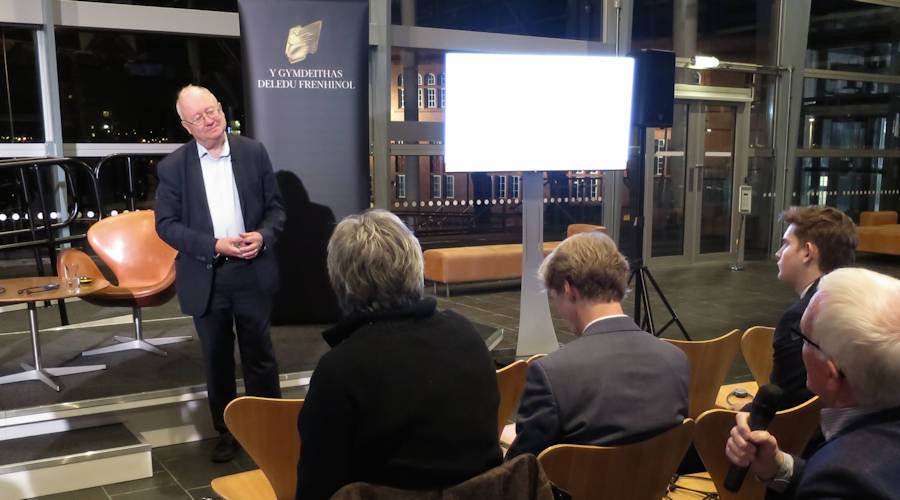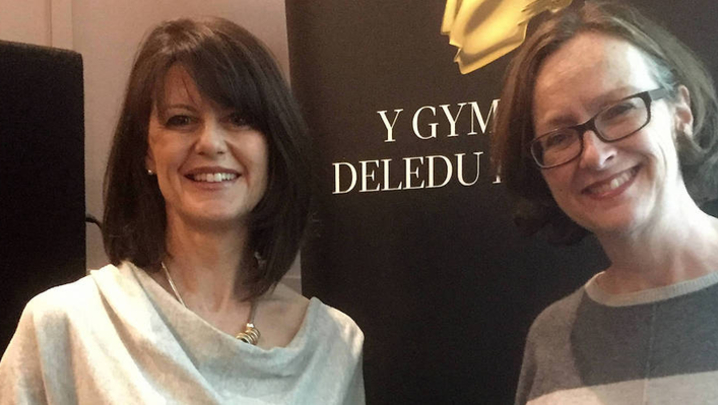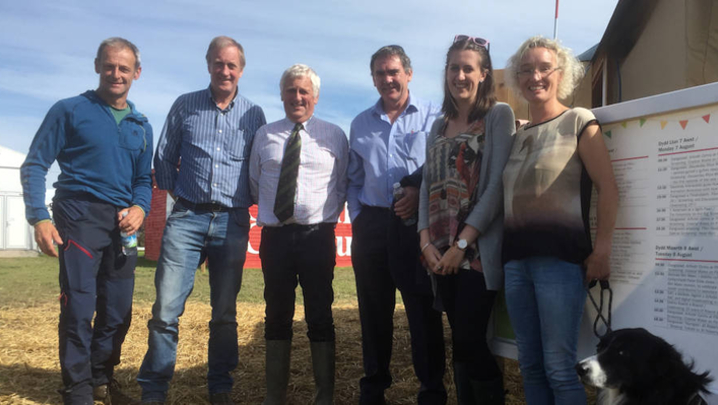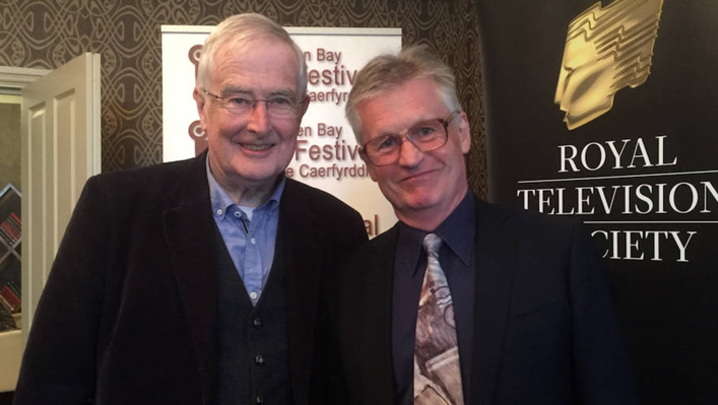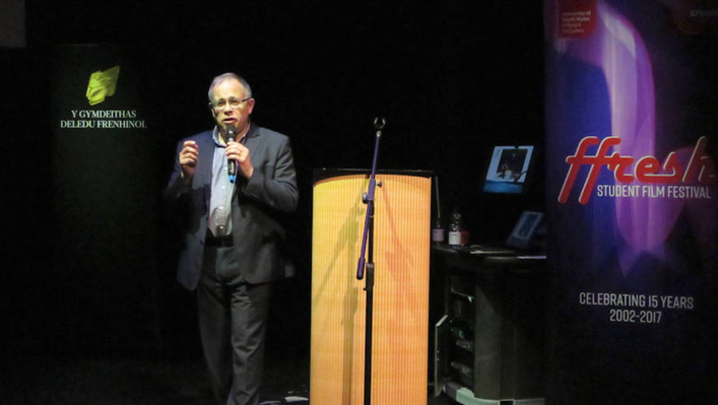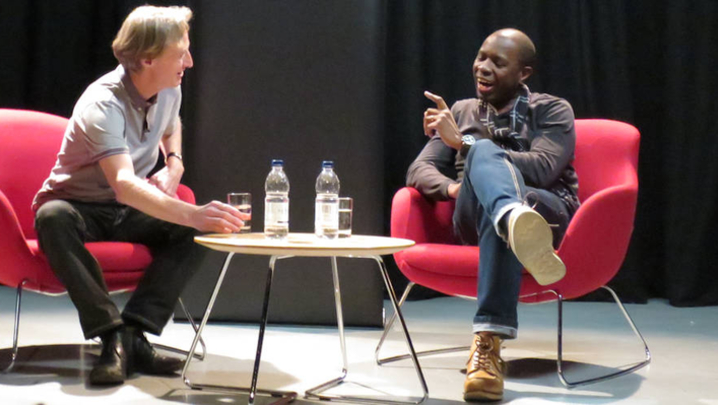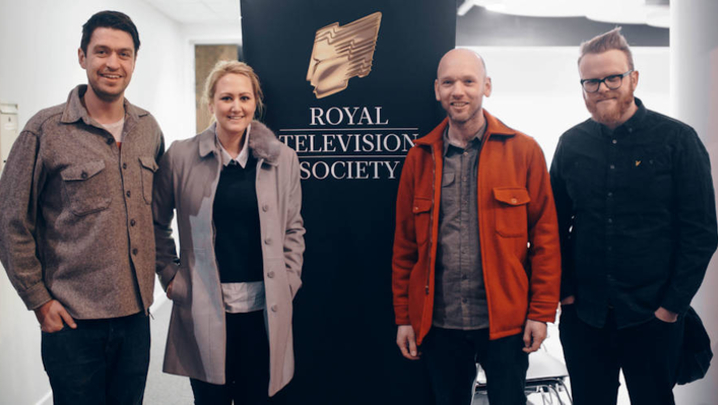(Leighton Andrews listening to a question from Geraint Talfan Davies)
"Facebook should be regulated like a utility", former Welsh Government Minister Leighton Andrews told RTS members in his lecture on the 19th October, presented by Bethan Jenkins AM, Chair of Culture, Welsh Language and Communications Committee.
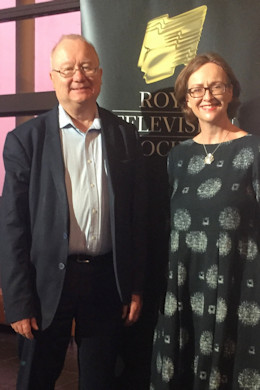 Speaking at the Senedd, the home of the National Assembly for Wales, Andrews, (left with RTS Wales Chair, Judith Winnan), a former BBC Head of Public Affairs who is now a Professor in Cardiff Business School, said :
Speaking at the Senedd, the home of the National Assembly for Wales, Andrews, (left with RTS Wales Chair, Judith Winnan), a former BBC Head of Public Affairs who is now a Professor in Cardiff Business School, said :
"There is growing concern about the role of Facebook in the US elections and the UK Brexit referendum. We know that at different times Facebook’s infrastructure may have been utilised by hostile countries, by criminals and terrorists. We know that electoral laws in relation to Facebook advertising are inadequate. We know that Facebook collects enormous quantities of data on its users, and its algorithms use that data to target advertising at individuals. We know that Facebook has also been caught out in seeking to manipulate the emotions of users in ‘nudge-style’ experiments.
"We also know that Facebook – and Google – are devouring almost all the growth in digital, and particularly mobile, advertising. This is having a devastating effect on the newspaper industry in particular.
"Facebook is one of the most powerful communication companies ever created. Yet it largely lies outside UK and EU media laws and regulations. Ofcom, the UK’s media regulator, has no meaningful role in its regulation.
"Too often Facebook appears to be playing catch-up, as problems with its platform are exposed by other media organisations or by independent academics.
"We have never before seen a trans-national company with the communications power of Facebook. Its founder has called it a ‘utility’ and ‘critical social infrastructure’ – it should be regulated as an information utility, brought firmly within communications legislation, with a lead regulator, probably Ofcom, empowered to monitor and take action if needed. There should be regular meetings between relevant regulators to share information, including the Information Commissioner, the Electoral Commission, Advertising Standards Authority, the age-appropriate regulator under the Digital Economy Act (the BBFC), and where necessary the Competition and Markets Authority, as well as Ofcom."
Professor Andrews also called for a levy on the advertising revenues of Facebook and Google to support independent media. "Levies on the advertising revenues of Facebook and Google could provide significant support for media organisations."
Professor Andrews said that the broadening of the ‘Fake News’ inquiry by the Select Committee on Digital, Culture, Media and Sport could be an important step in changing the regulatory debate. He dismissed claims by Ofcom chief executive Sharon White that regulation of social media platforms was close to censorship, saying, "Ofcom regulates the BBC. Do people suggest that they are censoring the BBC? I think not".
Update: A video of the lecture is now available, with thanks to the University of South Wales.

